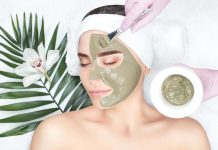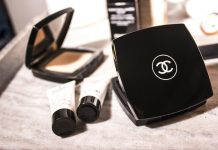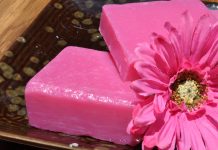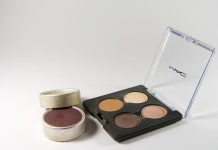In the world of skincare, where the promise of radiant, flawless skin beckons from every shelf, the debate over artificial fragrances remains a perennial topic of intrigue and concern. These scents, often alluring and evocative, transform routine skincare into a sensory experience. Yet, beneath their fragrant allure lies a question that stirs both curiosity and caution: Should you embrace or avoid skincare products infused with artificial fragrances? This article delves into the heart of this aromatic dilemma, exploring the science, the myths, and the personal choices that define our relationship with these scented companions. Join us as we navigate the fragrant frontier, balancing beauty with well-being.
Exploring the Allure: Why Artificial Fragrances Attract Us
The world of artificial fragrances offers a sensory journey that captivates our senses in unexpected ways. Synthetic scents are crafted with precision, allowing for a broad spectrum of aromas that can evoke emotions, memories, and even aspirations. The allure of these fragrances often lies in their consistency and ability to replicate or enhance natural scents, creating a dependable olfactory experience every time.
Many find themselves drawn to these fragrances for several reasons:
- Versatility: They offer a wide range of scent profiles, from floral to woody, enabling personal expression.
- Stability: Synthetic scents tend to have a longer shelf life, maintaining their integrity over time.
- Cost-effectiveness: Often more affordable than their natural counterparts, making them accessible to a broader audience.
Understanding the attraction to artificial fragrances allows us to appreciate their role in our daily lives, whether it’s a spritz of perfume or a subtle hint in skincare products.

Beneath the Surface: Potential Risks of Synthetic Scents
While synthetic scents can transform a mundane skincare routine into a sensory delight, they often come with hidden drawbacks that are not immediately apparent. Artificial fragrances are complex chemical mixtures, and many of their components remain undisclosed due to proprietary rights. This opacity can pose potential health risks, especially for those with sensitive skin or allergies. These scents may trigger irritation, redness, or allergic reactions, leading to a compromised skin barrier over time.
Beyond immediate skin concerns, there are broader implications. Some synthetic fragrances contain phthalates, which are used to make scents last longer but have been linked to endocrine disruption. Additionally, the accumulation of synthetic chemicals in personal care products can contribute to environmental pollution, impacting aquatic life and ecosystems. As consumers become more conscious of what they apply to their skin, the demand for transparency and safer alternatives is growing.

Decoding Labels: How to Identify Artificial Fragrances
Understanding the ingredients in your skincare products can be daunting, especially when it comes to identifying artificial fragrances. These synthetic scents are often listed under vague terms, making them difficult to spot. Look for terms such as “fragrance,” “parfum,” or “perfume” on the label. These can be catch-all terms for a blend of undisclosed ingredients, which may include artificial components.
- Phthalates: Often used to enhance the longevity of scents, these are usually hidden under the “fragrance” umbrella.
- Alcohol Denat: This is sometimes used as a solvent in synthetic fragrances and can be drying to the skin.
- Benzyl Salicylate: Common in perfumes, it’s another indicator of artificial fragrance presence.
To make informed choices, consider products that specify “fragrance-free” or use terms like “naturally scented” with details about the essential oils used. By decoding these labels, you can better navigate the world of skincare and choose products that align with your personal preferences.

Making Informed Choices: Expert Tips for Safer Skincare
- Potential Irritation: Artificial fragrances can be a common trigger for skin irritation, especially for those with sensitive skin. They may lead to redness, itching, or even breakouts. It’s important to check if your skin is prone to reacting to such additives.
- Understanding Labels: Many products simply list “fragrance” on their ingredient list, which can be misleading. This term might encompass a cocktail of undisclosed chemicals. Opt for brands that provide full transparency about their ingredients.
- Allergy Considerations: If you have allergies, artificial fragrances might exacerbate them. Look for products labeled ”fragrance-free” or “unscented,” though it’s crucial to verify that these terms genuinely mean no added scents.
- Alternatives: Consider products with natural fragrances derived from essential oils. However, be cautious as natural doesn’t always mean irritation-free. Patch testing is always recommended.
- Environmental Impact: Artificial fragrances can also have environmental repercussions. They often contain volatile organic compounds (VOCs) that contribute to air pollution.
Making informed skincare choices involves not only considering your skin’s immediate reaction but also understanding the broader implications of product ingredients. By paying attention to what you apply on your skin, you can enjoy healthier skin while being mindful of your overall well-being.





































